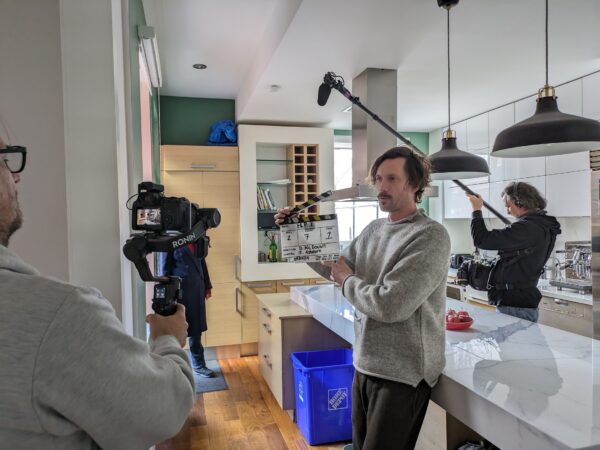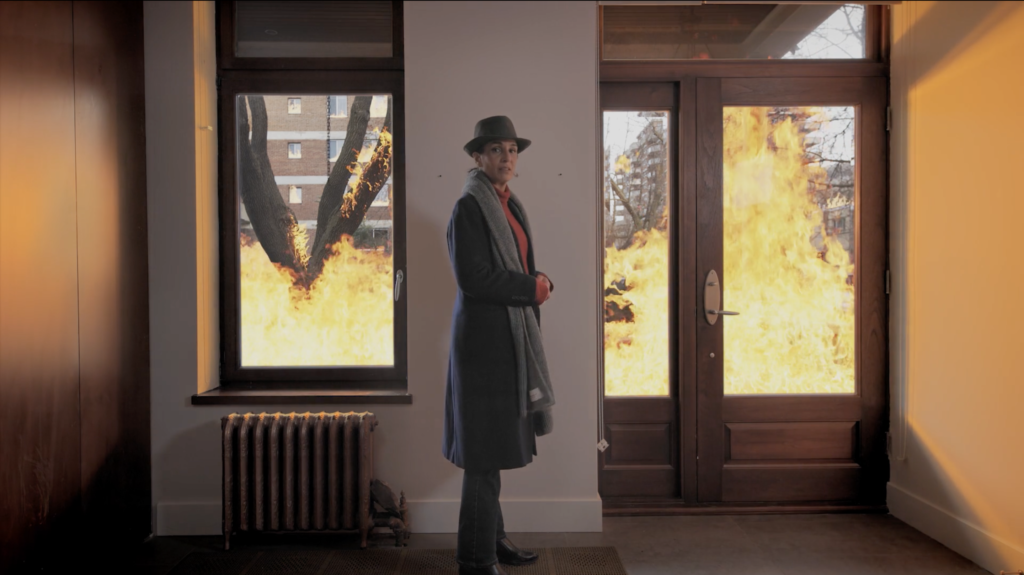 Back
Back
The VOYAGERS climate festival that put on its own film festival
🔥THE HEAT put on its own climate film festival – thanks to our curator Tristan Copley Smith, who selected which submissions were shown at the festival.

BY JOE ROWAN, June 21 2024
THE HEAT, VOYAGERS.io’s first-ever climate-tech festival, took place on Friday September 20 2024 at the extraordinary Harwell Science and Innovation Campus in Oxfordshire.
THE HEAT is a hands-on, practical, mind-expanding, friendship-building, exploratory, curiosity-led, science-based, creative, artistic, participatory, decentralised, experimental, edgy, live, risky, urgent and unpredictable gathering of the talented people working on climate technologies. THE HEAT is not a conference. Don’t expect dull panels or awful coffee. Instead, come to make new friends, experience science in action, learn and share your knowledge, inspire and be inspired. Bring your most engaged and curious festival mindset.
🔥THE HEAT put on its own climate film festival – thanks to our curator Tristan Copley Smith, who selected which submissions were shown at the festival.
One tool for fighting climate change is powerful narrative storytelling — which is why THE HEAT, the VOYAGERS climate-tech festival on September 20 2024, featured its own climate-film festival.
Filmmaker and VOYAGER Tristan Copley Smith curated the festival, called Hot Takes, and opened a call for submissions. We showed three hours of mostly short films at the festival, which were shown throughout the day: short non-fiction films, short fiction films, and climate promotional videos. The makers of three winning submissions received a free ticket to the festival, a small cash prize, and an opportunity to pitch their next film project to investors and climate insiders from the festival’s main stage.
“Ideally, we’re looking for film content that’s been generated in the past few years that aligns with VOYAGERS’ and THE HEAT’s remit of being quite optimistic, solutions-focused, and unconventional,” Copley Smith says. “It’ll bring a nice respite during the conference to watch some creative inputs from filmmakers who’ve been dealing with this issue in a creative context, as opposed to a solutions-oriented context.”
We set some simple submission criteria. Each film should contain a compelling climate-related message, run to ten minutes or less (except in rare cases for outstanding films), and have high-quality visual and sound production. In general Copley Smith is looking for “a strong message of climate hope over climate anxiety”, and especially hopes to feature work that showcases humour, curiosity, science, innovation and unconventional thinking. “We’d love work that’s creatively and/or stylistically unconventional; that is character driven, whether that character is human or non-human; that is created by filmmakers from a mix of genders, ethnicities and cultures; and finally that is challenging or revealing, and encourages the audience to reconsider commonly-held assumptions.”

Copley Smith, 38, is well-placed to judge what makes a powerful climate film. He was video communications director at Wikileaks in 2011-2012, and he has since taught about film as a professor of documentary at the Institute for Advanced Architecture of Catalonia. He has published in Al Jazeera and The Guardian, and his independent documentaries have been screened at film festivals around the world. Since 2021 he has been producing Carbon Catchers, a docu-series about the activist-founders working on carbon capture, and in 2023 co-founded Possible Studio, a production company that works predominantly with climate startups to tell their stories. He has also co-founded three startups of his own, including OSBeehives, an open-source platform to help beekeepers monitor beehives.

In his view, films are uniquely placed to change the conversation about climate change and how we are fighting it. “A cinema is one of the few places where people will sit in total enrapture thanks to a narrative, and not be distracted by a device or a tech company taking away their attention. That allows film to have an impact on us that goes beyond the superficial.”
Still, Copley Smith believes that films are not currently doing justice to the climate crisis. “There’s a lot of innovation happening and that’s all very exciting, but in terms of the public’s understanding and buy-in to what’s happening, I don’t know if we’re doing a great job of communicating that. We’re stuck in this doom-and-gloom cycle about things being so bad, and politicians not meeting commitments, and us flying past all these scientific thresholds. [Limiting temperature rises to] 1.5 degrees is no longer seemingly possible — now we’re talking about if 2 degrees is possible.”
Copley Smith’s experience as an entrepreneur has shaped his view of what climate films are lacking. “It helped me understand how technology can be applied to solve systemic problems, as opposed to just solving customer needs or addressing market evolution. We can use technology to rebalance our relationship with the planet, as opposed to continuing to extract from it.”